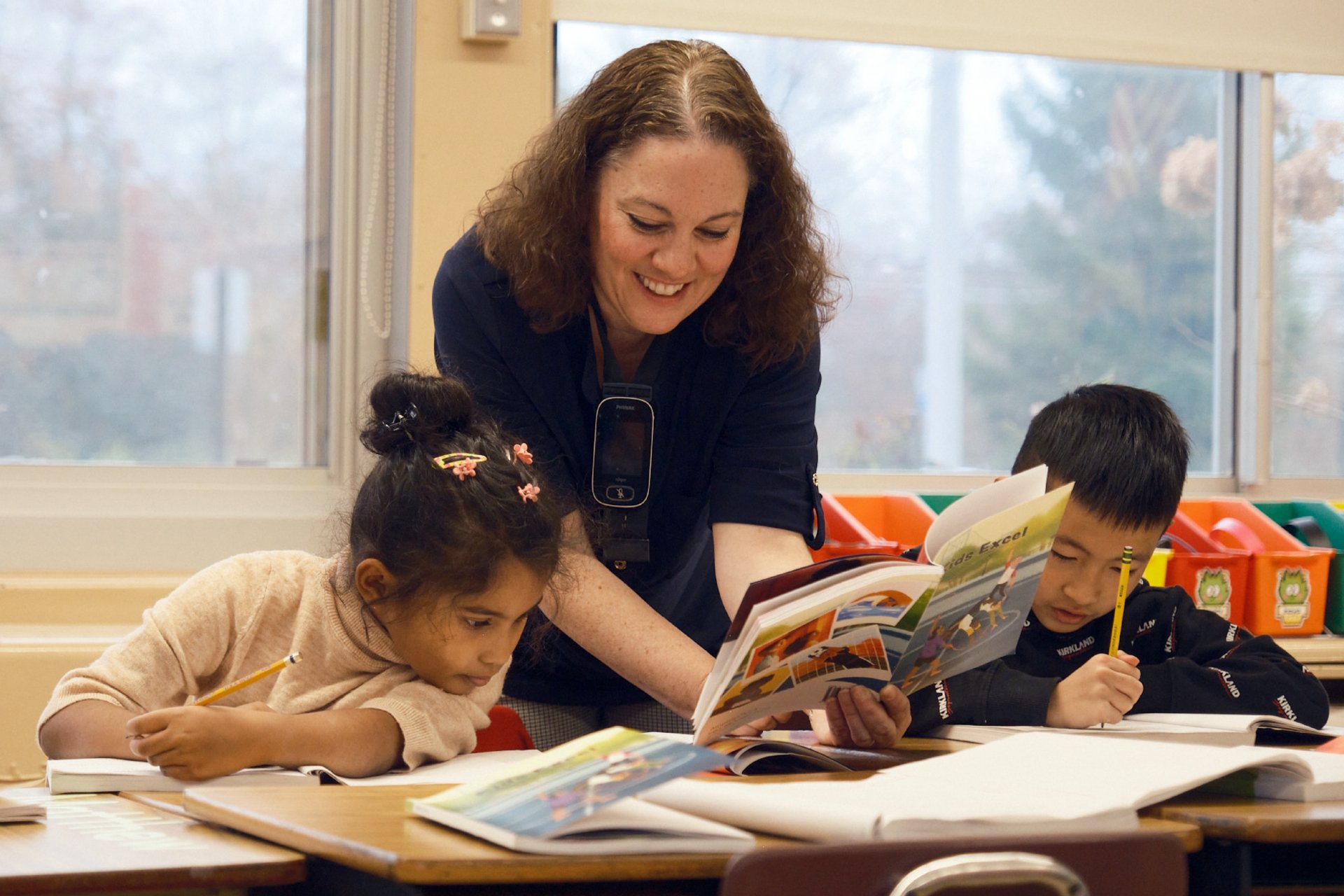BROOKLYN, NY (November 9, 2023) — Amplify, a publisher of next-generation curriculum and assessment programs, released a research brief about national beginning-of-school-year (BOY) reading data today. Elementary school students are progressing toward early literacy levels that predate the COVID-19 pandemic. The latest data show more students across grades ąú˛úČýĽ¶Ć¬“3 performing at levels on track for learning to read and ready for core instruction.
Measurable disparities in achievement between Black and Hispanic students and their Asian and white peers remain significant, but have narrowed in kindergarten and grade 1 since 2021–22. Among kindergarteners, the most recent data (2023–24) show increases of 12 percentage points for Black students and 13 percentage points for Hispanic students who are on track for learning to read. In first grade, the data show increases of 11 percentage points for Black students and 10 percentage points for Hispanic students who are on track for learning to read.
Despite the increase in the percentage of students on track, only half of ąú˛úČýĽ¶Ć¬“3 students are prepared to read at grade level at the start of the school year, with 30 to 40 percent beginning the year needing intensive early literacy intervention. Students starting first, second, and third grade in 2023 are performing worse than their counterparts from 2019, the last academic year before the pandemic, while kindergarteners outperform their peers from the fall of 2019.
“The earliest grades are the most critical time for literacy development,” says Susan Lambert, chief academic officer of elementary humanities at Amplify. “Educators need data from BOY assessments to develop plans and allocate resources for students who are most at risk for not learning to read.”
Research-based reading instruction reduces the need for intervention and enables children to progress as capable, confident learners. Educators serving all students, and especially students in grades ąú˛úČýĽ¶Ć¬“3 first learning to read, need data-driven insights into reading development, instructional practices based on the Science of Reading, and support helping students who require more targeted instruction and intervention to catch up.
Methodology
The report compares mCLASS® with DIBELS® 8th Edition benchmark data from the 2019–20, 2020–21, 2021–22, 2022–23 and 2023–24 school years. From more than 2 million students assessed with mCLASS, approximately 200,000 students in a matched set of 1,400 schools in 43 states are represented. The schools in the source data are slightly more likely to be in large urban metropolitan areas than the nation overall.
The data was collected using the mCLASS platform, which automates the data collection of Dynamic Indicators of Basic Early Literacy Skills (DIBELS). DIBELS is a widely-used series of short tests developed by the University of Oregon that assess ąú˛úČýĽ¶Ć¬“8 literacy. DIBELS is an observational assessment collected by teachers interacting with students one-on-one, either live or over video. DIBELS is typically administered three times a year (beginning, middle and end of year) and is used to identify reading difficulty, monitor progress, and inform instruction, especially for struggling readers.
About Amplify
A pioneer in ąú˛úČýĽ¶Ć¬“12 education since 2000, Amplify is leading the way in next-generation curriculum and assessment. Our captivating core and supplemental programs in literacy, math, and science engage all students in rigorous learning and inspire them to think deeply, creatively, and for themselves. Our formative assessment products turn data into practical instructional support to help all students build a strong foundation in early reading and math. All of our programs provide teachers with powerful tools that help them understand and respond to the needs of every student. Today, Amplify reaches more than 15 million students in all 50 states. To learn more, visit amplify.com.
Media Contact
Kristine Frech
media@amplify.com

